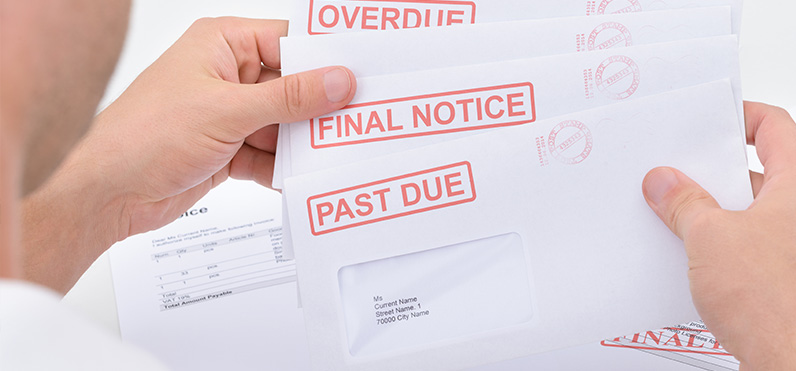“And now for something completely different”. Over the last ninety days this Monty Python phrase continuously pops into my head every time federal, state, and local governments issue a new law, regulation, or order due to the COVID-19 state of emergency. Changes will continue to come with the state’s economic reopening guidelines so we can only control, that which we can control. Fortunately, condominium lien enforcement has been able to continue as before, now that the U.S. District Court of Massachusetts struck down as unconstitutional the Attorney General’s March Regulations which severely limited collection practices in Massachusetts. Mortgage holders remain restricted by what they can do, both under the Federal CARES Act and under the Massachusetts State of Emergency, so at this time, mortgage holders are more inclined to pay common expense arrearages quickly.
Changes will continue to come with the state’s economic reopening guidelines so we can only control, that which we can control.
In this article, we will discuss the first step after the decision has been made to send a delinquent unit owner to counsel for the commencement of the collection process and provide tips and guidelines that should be considered prior to sending a matter to collections.
The NOL Letter
Under G.L. c. 183A, § 6(c), a so-called “Notice of Lien” letter, or NOL, can be sent once the owner is at least 60 days past due. The purpose of this letter is to advise the owner of the existence of a delinquency hat constitutes a lien and provide a chance to cure as well as to advise of the consequences should they fail to do so. In order to put the association in the best position to collect on a unit owner delinquency the following tips are provided for your consideration:
Whether a condominium employs a management company, an accountant or keeps its own records (all hereinafter, referred to as “record keeper”), the condominium trust should ensure that separate ledgers are kept for each unit owner and contain certain basic information.
1. Name and address of current unit owner: It may sound basic, but not having current information about the unit owner can cause delays in the collection process. Sometimes title to units are held in a trust, a corporation, or the name of another family member on behalf of the occupant. G.L. c. 183A, § 4(4) requires each owner to provide the Trust with their name and mailing address, and advise of any changes. Making sure that the owner on a ledger is named appropriately whether it be in their individual name or via Joe Smith c/o ABC Realty Trust greatly assists legal counsel in ensuring compliance with the law by helping to ensure the notice is sent to the correct party.
Legal counsel also needs to know the address of the Unit and mailing address of the owner if they do not reside in the Unit. An e-mail address is not a mailing address. While e-mail may be fine for communicating with unit owners, it is not sufficient for legal purposes – you cannot serve an e-mail address with legal papers. The record keeper should also pass on any information it possesses that legal counsel may not immediately be able to determine, such as the unit owner having advised of a bankruptcy filing, or being hospitalized, or if the unit owner has passed away.
2. Identification of charges on the ledger: Most ledgers will state “condo fee”, “supplemental fee”, “late charge” “legal fee” and identify payments by a separate column. However, the issues arise when there is no notation as to the purpose of the charge. This can be confusing not only to the unit owner, but to legal counsel and to the mortgage holder who requests an arrearage breakdown. For those matters that get filed with the courts, the charges also need to be clearly defined so they can be explained to the judge.
3. In that same regard, payments posted to a ledger should also be identified as being from the unit owner or their mortgage holder. The reasoning for this is that under Chapter 183A, section 6(c), the mortgage holder can agree to pay the priority lien and then continue to make the subsequent condo fee payments in order to prevent the condominium trust from filing future lien enforcement actions. When a mortgage holder is making the subsequent payments, it is required they be applied to condo fees only, and not to other outstanding non-priority items on the ledger.
4. The record keeper should notate on their system when an account has been sent to legal counsel and flag the account as being in collections. This is important so that when an owner requests a balance, the record keeper will know to refer the owner to legal counsel to provide the payoff, which will include all legal fees incurred. The condominium trust is liable for all legal fees incurred and the owner is in turn liable to make reimbursement to the condominium trust. The record keeper does not want to provide a payoff, minus legal fees, and then advise the owner they are current. This causes confusion and can unnecessarily prolong litigation. If owners are allowed to pay common expenses via a website/portal, a lock should be put on to prevent them from doing so, as the website ledger will not always have all legal fees posted.
If an account cannot be locked, then once an account is with legal counsel, the record keeper should always advise legal counsel when a payment is received. The reasons for this are twofold: first, if an owner submits a partial payment, counsel should send correspondence acknowledging the partial payment and advise that the delinquency continues so that an owner doesn’t have the belief that a partial payment will stop legal action. Depending on the amount of a partial payment, it may also stop counsel from having to take further required legal action; second, some owners will submit payment and mark the check as “payment in full”, when it is not. If the record keeper accepts such a payment, the owner can make the legal argument that it was accepted in satisfaction in full of the arrears. Legal counsel will need to timely return such a payment and advise of the full amount due and owing that needs to be submitted.
The majority of lien actions are resolved at the NOL letter stage. The more accurate and up to date the information provided to counsel at the beginning of the process the greater the likelihood that a board can take full advantage of the opportunity for early resolution.


